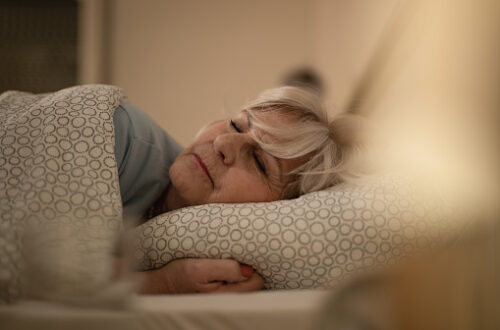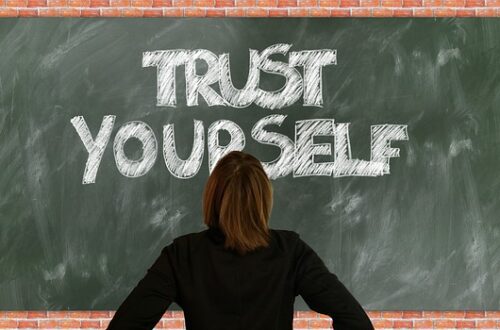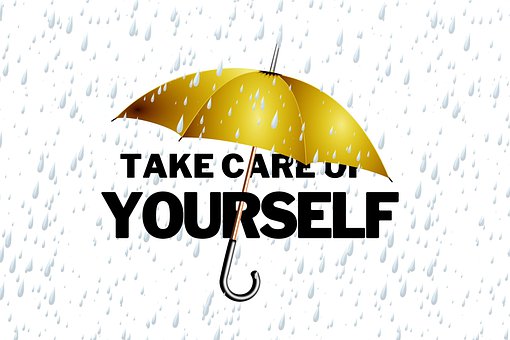
Techniques to Reduce Stress & Anxiety: 7 Tips to Implement Self-Care
“If you don’t think your anxiety, depression, sadness, and stress impact your physical health, think again. All these emotions trigger chemical reactions in your body which can lead to inflammation and a weakened immune system. Learn how to cope, sweet friend. There will always be dark days.”—Kris Carr
Meet Tammy, a stressed-out family caregiver:
“My husband had three strokes within three months. I had to drive him from the hospital to a nursing home for rehab each time it happened.
“I wanted to cry because the nursing homes were awful.
“I felt such rage because I had spent eighteen years dealing with my husband, and not one relative offered to help financially or even to visit, but instead complained about my decisions.
“I was under extreme stress.”
Tammy needs a break—and fast—as she’s approaching burnout.
If Tammy cannot arrange respite care or a time to get away from her situation, the stress and anxiety will make her sick—or kill her!
And then what?
Who will care for Tammy’s husband if she’s too ill or not around to do so?
Sad to say, but based on Tammy’s comments, it seems unlikely she can depend on relatives or friends to help.
The question of what will happen to Tammy’s husband without her is scary.
No, it appears that Tammy must begin immediately to ensure she remains physically strong and mentally and emotionally healthy as long as possible and to improve her overall well-being.
Tammy must immediately commit to a program of self-care.
The stakes cannot be higher.
What Can Tammy Do?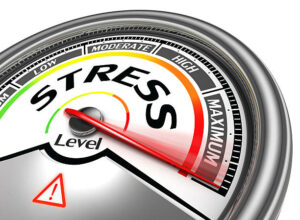
In this article, I will reveal several techniques to reduce stress and anxiety and seven tips to implement self-care right now.
“If your compassion does not include yourself, it is incomplete.”—Jack Kornfield, author, and a trained Buddhist monk.
Let’s begin with a simple question: What Is Stress?
“Since stress is the nonspecific response of the body to any demand, everybody is always under some degree of stress.”—Dr. Hans Selye
Yes, “everybody” is under some degree of stress.
The three types of stress:
- Acute: temporary response to a particularly stressful event; does not last long.
- Chronic: long-term a sufferer sees no way out; poverty, ongoing family problems, despise job or no job.
- Traumatic: overwhelming tragedy, such as rape, accident, or natural disaster.
Techniques to Ease Acute Stress
Get active
- Walk
- Jog
- Work in the garden
- Clean the house
- Swim
- Eat Healthily
- Fruits
- Veggies
- Nuts
- Meditate
- Focus attention and quiet your mind
- Breathe deeply
- Laugh
- Listen to or tell a few jokes
- Watch comedy shows
- Read your favorite jokes
- Connect with others
- Try Yoga
- Get enough sleep
- Keep a journal
- Listen to music
(Source: Mayo Clinic)
Methods to Manage Chronic Stress
PubMed.gov reports that social conditions can contribute to chronic stress:
- Crowding
- Crime
- Noise Pollution
- Discrimination
Methods to manage chronic stress include:
- Learn time management techniques
- Learn and practice mindfulness skills
- Get more sleep*
- Eat healthy foods*
- Exercise*
- Set realistic goals
- Play a musical instrument
- Simplify your life
- Spend time with family and friends
- Try to forgive
Strategies to Treat Traumatic Stress (PTSD)
First thing, see a good therapist!
Therapy goals
- Teach skills to deal with trauma
- Restore self-esteem
- Improve symptoms
- Medications often prescribed
- Prozac
- Paxil
- Zoloft
- Effexor
- Antidepressants
(Source: WebMD.com)
Dear reader,
You can begin today, right now, to reduce the different degrees of stress and anxiety in your life: Acute Stress, Chronic Stress, and Traumatic Stress.
Next Up
Seven Tips to Implement Self-Care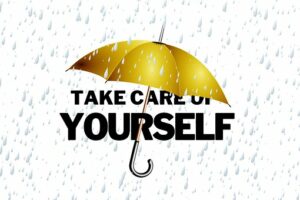
What is self-care?
This quote sums up self-care: “Caring for your body, mind, and spirit is your greatest and grandest responsibility. It’s about listening to the needs of your soul and then honoring them.”—Kristi Lang
Perhaps you can relate to the words from the wise man Solomon, employing interesting metaphors, likened the human body to a house with windows and doors, and the Christian apostle Paul called our body “this dwelling house.” (Ecclesiastes 12:3-7; 2 Corinthians 5:1, 2)
Like a house, your body needs proper care if you are to get the full benefit from it.
What kind of housekeeper are you when it comes to caring for your body physically, emotionally, and spiritually?
Self-care takes many shapes.
All of the above ideas mentioned related to the three types of stress (acute stress, chronic stress, and traumatic stress) apply to self-care in general.
In addition, do your utmost to follow the seven suggestions below to implement self-care elements that will improve your life.
Tip #1
Physical self-care: exercising and moving the body is always number one for improving physical health.
Activities could include:
- Brisk walking
- Aerobics
- Swimming
- Cycling
- Tennis
- Skiing
- Yoga
Benefits of regular exercise:
- Boost energy
- Promote better sleep
- Strengthen bones
- Protect your joints
- Prevent bladder control problems
- Ward off memory loss
- Keep weight under control
Also, you must keep up with recommendations from your doctor (medications, tests, treatments) to ensure good physical health.
Physical self-care also requires that you rest your body.
Millions of the body’s cells break down each day and need to be replaced. Your body builds up particular wastes that collect in the muscles, especially as a result of exercise.
Wastes are what give you a tired feeling.
So, cooperate with your body by giving it the rest it needs.
Get sufficient sleep each night.
And unplug.
Put your phone a laptop away and allow your brain to slow down.
Tip #2
Physical self-care: eating a balanced diet contributes to good physical health.
Hippocrates called the father of medicine, is reported to have said: “Thy food shall be thy remedy.”
In other words, better than food as a remedy is a portion of food for health maintenance!
One thing on which practically all nutritionists seem to agree is that overeating fat can increase your risk of high cholesterol levels and increases your risk of heart disease.
Sensible eating habits include getting sufficient vitamins and minerals (often called micronutrients because your body needs only tiny amounts).
Without micronutrients in your body, you could suffer from a vitamin deficiency, which can result in horrific diseases and medical conditions.
Benefits of micronutrients include:
- Strong bones
- Prevention of congenital disabilities
- Healthy teeth
Vitamins and minerals keep our eyes, skin, lungs, gastrointestinal tract, and nervous system healthy.
(Source: A Family Caregiver’s Guide: 7 Secrets to Convert Negative Triggers to Positive Emotions 2019).
What is a healthy diet?
A healthy diet should include the following:
- Protein (found in fish, meat, poultry, dairy products, eggs, nuts, and beans)
- Fat (found in animal and dairy products, nuts, and oils)
- Carbohydrates (found in fruits, vegetables, whole grains, beans, and other legumes
- Vitamins (such as vitamins A, B, C, D, E, and K)
- Minerals such as calcium, potassium, and iron)
- Water (both in what you drink and water found in foods)
(Source: WebMD.com)
Tip #3
Physical self-care: taking care of your teeth.
Dental issues—like gum and tooth decay—increase the risk of bacterial infections in the bloodstream as it’s easy for bacteria to travel to the blood.
The Centers for Disease Control and Prevention (CDC) links diabetes to gum disease.
Healthy teeth are clean and free of pain.
Healthy gums are pink and do not bleed when brushed or flossed.
While no one can claim that brushing and flossing your teeth will prevent a heart attack, poor dental care leads to tooth decay, gum disease, and other health problems.
How to prevent gum disease and save your teeth and protect your health:
- Brush twice a day for a minimum of two minutes.
- Floss daily.
- Avoid smoking or chewing tobacco.
- Use fluoride.
- Limit sugary foods and drinks.
- Eat a well-balanced diet.
(Source: AbsoluteDental.com)
Tip #4
Emotional self-care: manage and express your feelings.
Though often used interchangeably, emotional health and mental health have different meanings.
Mental health relates to behaviors related to the mind or brain, typically due to a chemical imbalance.
For instance:
- Anxiety
- Depression
- Bipolar disorder
- Eating disorder
- PTSD
These disorders often require support from a mental health professional to figure out and treat.
On the other hand, emotional health deals with matters of the heart.
(Source: RedOakRecovery.com)
When confronting adverse life events or traumatic experiences, we often deal with emotional health issues.
For instance, when we don’t control our anger practically, or we fail to listen carefully to both sides of a situation, which may provide insight that could calm our emotions, we lash out and perhaps say or do something we later regret.
How to recognize an emotional reaction:
- Face gets hot
- Muscles tense
- Breathing accelerates
- Heart races
- Clenched fists
- Dizziness or faintness
- Trembling
- Nausea
- Sweating
- A feeling of floating/dissociation
- Crying
Whoa!
Not healthy.
Techniques to calm your emotions:
- Relax: Breathe and release the tension in your body.
- Detach: Clear your mind of all thoughts.
- Center: Pretend that your awareness can be moved and drop it to the center of your body just below your navel and feel your breathing, as this will help you clear your mind.
- Focus and Implant: Choose one keyword that represents how you want to feel or who you want to be at that moment.
(Source: outsmartyourbrain.com)
I chose the word “patient” when confronted with “hot-button” issues.
More ideas to quiet your spirit:
- Meditate
- Write in a journal
- Use essential oil
- Lavender
- Passionflower
- Lemon balm
- Show gratitude
- Breathe deeply
- Get help when feeling overwhelmed
Tip #5
Emotional self-care: choose positive friends; avoid “toxic” people.
Toxic people are usually those that make you feel bad when you interact with them and are often described as:
- Users
- Competitors
- Controllers—bossy
- Bad influencers
- Put you down at every turn
The result of being around people described as toxic? Emotional stress.
You feel drained and unsure of yourself.
But we all need true friends.
We strive for and desire companionship and closeness with others—not aloneness.
We all need people in our lives who will support us and encourage us when we feel down.
Healthy friendships are essential not only for our emotional wellness but for our mental, physical, and overall well-being.
How to tell a true friend?
True friendship is associated with love, familiarity, confidentiality, and companionship.
Friends do things for one another.
For many today, true friends are difficult to find and keep.
Why?
Could it be a lack of time; you’re rushed and too busy?
Or—
- You have high expectations.
- You have a negative mindset.
- Your values have changed.
- People are intimidated by you.
- You are intimidated by other people.
- Many people are competitive.
- Many people are transactional.
No matter the reason, you should look for ones who offer support and comfort and make you feel happy.
To quote Shakespeare:
“Thy friendship makes us fresh.”
Henry VI, Act 3, Scene 3.
Making friends with new people is one of life’s greatest pleasures and joys.
Tip #6
Spiritual self-care: find your life’s meaning and purpose.
“The mystery of human existence lies not in just staying alive, but in finding something to live for.”—Fyodor Dostoevsky, The Brothers Karamazov
Spiritual wellness: “expanding a sense of purpose and meaning in life, including one’s morals and ethics. It may or may not involve religious activities.”—PubMed.gov
Steps to finding your life purpose:
- Explore the things you love to do and what comes easy for you. Don’t try to make something up. Your talent should already be inside you; you’re born with it. Even though you can develop talent, whatever is inside you comes naturally. Think musician.
- Ask yourself what two qualities you enjoy expressing to the world. For me: passion and compassion.
How do I enjoy expressing these qualities? Writing and speaking.
- Create a life purpose statement.
My statement: “Through my writing and speaking, I inspire and empower people to live their healthiest and most productive lives.
- Follow your inner guidance and set goals to clarify your vision.
- Be clear about your life purpose. You were born with an inner guidance that tells you when you’re on or off course by the amount of joy you’re experiencing.
- Conduct a passion test developed by Chris and Janet Atwood, considered one of the world’s best tools for finding your passion.
- Conduct a joy review. Set aside thirty minutes and list all the times you’ve felt the greatest joy in your life, which tells you if you’re on the right course.
(Source: Jack Canfield, referenced in A Family Caregiver’s Guide: 7 Secrets to Convert Negative Triggers to Positive Emotions 2019)
Tip #7
Spiritual self-care: avoid isolation and loneliness.
Millions of people in the United States live alone.
These individuals do not necessarily feel lonely or isolated.
Many likely feel as I do: they enjoy solitude.
Nevertheless, others may not.
Some may crave companionship; they may want deep friendships.
Loneliness can speed up aging and cause a decline in mental abilities, resulting in poor attention to detail and decision-making.
During the COVID-19 pandemic, loneliness increased to an all-time high.
Some studies show a higher risk of Alzheimer’s disease in individuals who have prolonged feelings of loneliness.
Constant loneliness can affect heart health, increase obesity, and cause high blood pressure, sleep problems, and depression.
Indeed, loneliness can affect your body and your mind.
Prolonged loneliness can have the same effects as substance abuse. These feelings can negatively impact mental health if left untreated and send a person to an early grave.
“The lonely person is 2 times more likely to be depressed, 1.5 times more likely to be anxious with thoughts of suicide.”—WebMD.com
Here are a few tips to help with loneliness:
- Deepen relationships.
- Make social connections.
- Take a class.
- Join at least three groups.
- Accept invitations.
- Invite someone for a meal or to the movies; take the initiative.
- Interact.
- Adopt an animal.
Finally, be yourself.
A sure way to experience loneliness is to fit into someone else’s mold.
Be who you are.
The right people for you will find you, as you will attract them only if you’re authentic.
Don’t try to fit in or be the kind of person someone else wants you to be—it is exhausting!
In the words of Popeye: “I am what I am.”
However, if you discover a personality flaw within you that you’d like to change for the better, you should do so.
Any positive change within you is called “personal development.”
Wrap-Up
So, are you ready?
Is it time that you begin your journey to reduce stress and anxiety in your life by using the techniques described in this article?
You can now recognize the three types of stress and what you can do to ease the symptoms:
- Acute stress
- Chronic stress
- Traumatic Stress
You have discovered seven ways to apply self-care in your daily life:
- Physical self-care: move your body; rest your body.
- Physical self-care: nourish your body.
- Physical self-care: take care of your teeth.
- Emotional self-care: manage and express your feelings.
- Emotional self-care: choose positive friends.
- Spiritual self-care: find your life’s meaning and purpose.
- Spiritual self-care: avoid isolation and loneliness.
It is now time to take action!
Your self-care is job #1; you must not neglect it.
This article revealed several helpful ways you can wrap yourself in a warm blanket on a cold night, as it were, to ensure that you care for and nurture yourself from head to toe.
You deserve it.
You’re worth it.
Please do it!
*And seek help when you need it.
A valuable resource:
Check out this insightful article titled, “Overcoming Relapse: Coping Strategies and Support for Long-Term Recovery”
– https://whitelightbh.com/resources/overcoming-relapse/
This article provides a comprehensive guide to managing relapses and adopting coping mechanisms for sustained recovery.
***** *****


